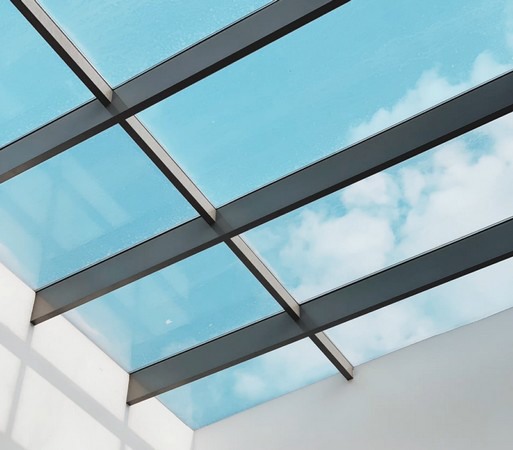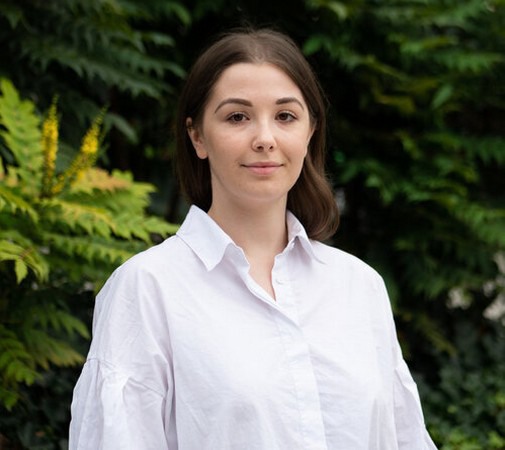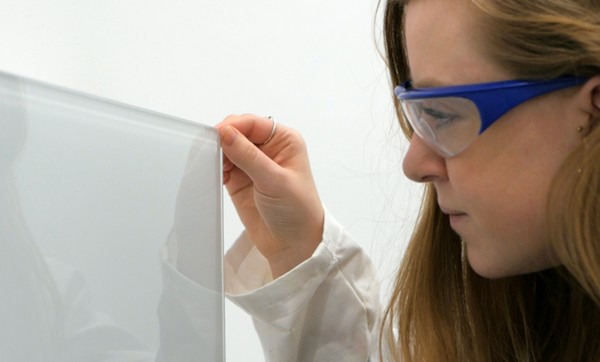In the sweltering summer months, greenhouse crops are faced with excess heat and sunlight, leaving farmers with the potential of ruined harvests. This can be mitigated through the use of shade paints, but these require routine removal in autumn to be applied again the following spring, making it a costly and time-consuming process. To solve this pressing issue, Molly Allington and her co-founder, Dr. Sian Fussell, developed a heat-responsive glass coating that transitions from transparent to opaque-white to passively shade greenhouse crops without requiring any electrical input. The coating remains effective for several years, cutting costs from applying and removing shade paints. Their company, Albotherm, aims to bring their technology to market by next autumn.
Albotherm is a female-driven start-up founded by Molly and Sian, who met at the University of Bristol. The pair shared a deep concern for climate change and wanted to provide effective and accessible solutions to the climate crisis for a range of industries.

“Sian conceived of a customizable heat-responsive coating while she was researching for her Ph.D. on temperature-responsive materials.” Once the pair realized they held the key to climate technology, they didn’t look back.
“We got our idea by chance, really. Our research supervisor told us about how hot his conservatory gets in the summer. That led us to research greenhouse growers, who we found to be dealing with similar struggles.”
Albotherm’s coating allows farmers to control the exact temperature that the shading kicks in at - between 18 degrees and 45 degrees Celsius, making it adaptable to meet the needs of a specific region, climate, and greenhouse crop. This also means the technology can be applied to the broader sector of commercial buildings to replace existing energy-intensive cooling systems.

Molly Allington, co-founder of the company
The company is now ready to take its product to the next stage, with the first trials commencing in July. “Currently, we have a simple prototype coating which we will apply to greenhouses at Rothamsted Research this summer before moving into commercial trials across the UK in 2023.”
“In our Rothamsted trials, we will apply our coating and then grow a few different crops under it to see the effects. We’re getting attention from growers already, particularly growers of more delicate crops such as flowers and herbs. Last year many of them shaded their greenhouses, and it turned out to be a relatively cold and dark summer, so the plants missed out on some crucial daylight. This would never happen with our coating, as it’s fully customizable so that plants will get enough sunlight even on cooler days.”

Dr. Sian Fussell, co-founder of the company
In addition to their retrofitted glass coating, Albotherm also plans to develop a product for new greenhouses with a more durable coating that would be applied to the glass panels after they are manufactured.
Currently, Albotherm produces all coatings, but next year they plan to scale their production and expand into other markets. “We want to enable growers to build greenhouses that can regulate their temperature without using electricity. We are also planning to develop solutions for commercial buildings. After all, what applies to greenhouses largely applies to buildings with large windows as well.”
For more information:
Albotherm
www.albotherm.com
